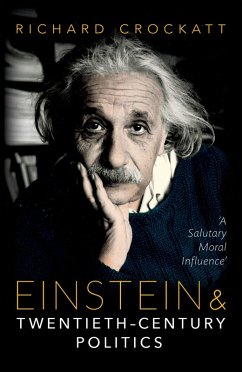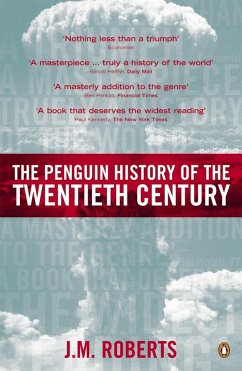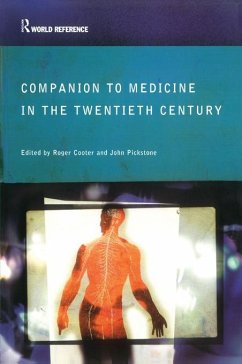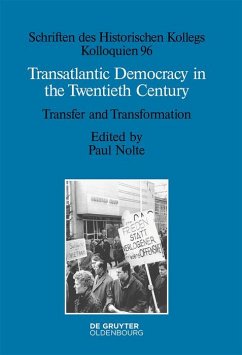
Einstein and Twentieth-Century Politics (eBook, ePUB)
'A Salutary Moral Influence'
Versandkostenfrei!
Sofort per Download lieferbar
13,95 €
inkl. MwSt.
Weitere Ausgaben:

PAYBACK Punkte
7 °P sammeln!
Albert Einstein, world-renowned as a physicist, was also publicly committed to radical political views. Despite the vast literature on Einstein, Einstein and Twentieth- Century Politics is the first comprehensive study of his politics, covering his opinions and campaigns on pacifism, Zionism, control of nuclear weapons, world government, freedom, and racial equality. Most studies look at Einstein in isolation but here he is viewed alongside a 'liberal international' of global intellectuals, including Gandhi, Albert Schweitzer, Bertrand Russell, H.G. Wells, George Bernard Shaw, Romain Rolland, ...
Albert Einstein, world-renowned as a physicist, was also publicly committed to radical political views. Despite the vast literature on Einstein, Einstein and Twentieth- Century Politics is the first comprehensive study of his politics, covering his opinions and campaigns on pacifism, Zionism, control of nuclear weapons, world government, freedom, and racial equality. Most studies look at Einstein in isolation but here he is viewed alongside a 'liberal international' of global intellectuals, including Gandhi, Albert Schweitzer, Bertrand Russell, H.G. Wells, George Bernard Shaw, Romain Rolland, Thomas Mann, and John Dewey. Frequently called upon to join campaigns on great issues of war, peace, and social values, they all knew or corresponded with Einstein. This volume examines how Einstein and comparable intellectuals sought to exert a 'salutary influence', as Einstein put it in a letter to Freud. Close attention is given to the unique qualities Einstein brought to his interventions in political debate. His influence derived in the first instance from his celebrity status as the scientist of genius whose theory of relativity was both incomprehensible to most and seemingly relevant to many aspects of aspects of culture and the cosmos. Einstein's complex and enigmatic personality, which combined intense devotion to privacy and a capacity to perform on the public stage, also contributed to the Einstein myth. Studying Einstein's politics, it is argued here, takes us not only into the mind of Einstein but to the heart of the great public issues of the twentieth century.
Dieser Download kann aus rechtlichen Gründen nur mit Rechnungsadresse in A, B, BG, CY, CZ, D, DK, EW, E, FIN, F, GR, HR, H, IRL, I, LT, L, LR, M, NL, PL, P, R, S, SLO, SK ausgeliefert werden.













